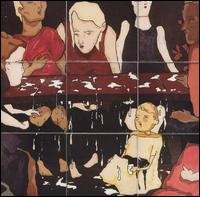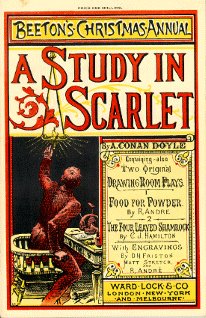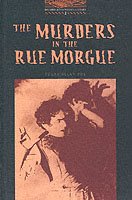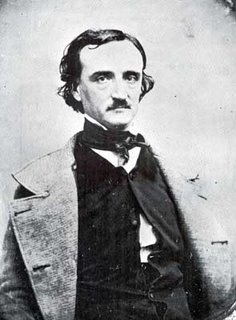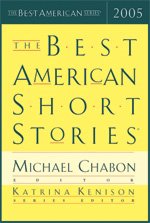
Best American Short Stories (2005), ed. Michael Chabon (4/5)
My creative writing teacher once told me that a when a short story ends it should leave the reader with a tuning fork-like resonance. That is, it should continue ringing in your head long after you’ve put the story down. Michael Chabon has compiled a collection of short stories that accomplish exactly that. Long after you have finished the Best American Short Stories of 2005 I guarantee your mind will continually drift back to them. I think the reason for this resonance is because a well crafted short story is, to borrow an analogy from Hemingway, an iceberg. As a reader, we are only shown the small part of the iceberg that’s visible above water, but there still remains the perplexing ninety-percent of the iceberg hiding underwater. The short story teases us with the visible ten percent while our mind continues trying to figure out the remaining ninety percent either consciously or unconsciously. To borrow another phrase from Hemingway (who in turn borrowed it from Gertrude Stein), a great short story is like a moveable feast.
It is to Michael Chabon’s credit that he managed to pick out short stories that contain this resonance when his own short stories lack exactly that. I picked up Werewolves in Their Youth several years ago, and found myself disappointed. While his prose has no peers, I found Chabon’s short stories suffered from an attempt to wrap up epic problems within twenty pages. From my experience, short stories solve nothing within the protagonists’ lives. At most they merely suggest a future resolution. Perhaps the reason is that the short story is too small for Chabon’s panorama epics to hold, and he really needs a novel to stretch out and contain his worlds. However, he recognizes a good short story when he sees it.
Let’s start with two of my least favorites from the collection. First up is “Silence” by Alice Munro. Before I read this story I had heard plenty of praise about Munro and was exited to finally read something by her. Like every story in the collection the prose is well written, but there was just something missing—oh, yeah a believable protagonist in a believable situation.
The story begins as the main character, Juliet, goes to meet her daughter who recently returned from a European trip. She discovers her daughter has joined some kind of cult. What does Juliet do after discovering her daughter has abandoned her? What every mother would do, she continues to live her life, and we get to about her switches careers, her relationship with men, and every once in a while manages to find the time to think about her lost daughter.. Of course, losing a daughter seems secondary to just about everything else in her life. Like anyone, my mother has her faults, but I now find it comforting to know that at the very least she would freak the fuck out if I became some kind of weird recluse cult member. What’s worse is that we never find out why Juliet’s daughter left her. The question is brought up once or twice, and it’s suggested that Juliet was not meeting her daughter’s spiritual needs or that she let her daughter get too close to her and treated her like a friend instead of the vulnerable child she was, but ultimately we’re given no definite answer. This is one of the worst cases of a writer creating a situation she has never encountered before. Sure, a really good writer can make a foreign situation seem real even though they have never truly lived through it. Usually they can find a comparable life experience and draw from that, but Munro does not manage that. Instead, the shortcomings of this story act like a black hole that sucks the rest of the narrative into it.
I didn’t have as much of a problem Tom Bissell’s “Death Defier,” but I did feel it failed to live up to its potential. In the commentary section the author claims he came up with the idea for this short story after going to Afghanistan and observing other journalists who were unaffected by the death surrounding them. The location and scope of his story promises to bring up some interesting questions, but by the end of the story you quickly realize the author’s content with breaking that promise.
The story involves two journalists, one American and one British, covering the American invasion of Afghanistan. The two of them decide to explore the country instead of staying holed up inside the fence of the American troops. The American seems absolutely callus to the events surrounding him. Is this a clever commentary on the effects of journalism or maybe some observations of an American outside of his boarders? No, it’s actually a character study of some guy who became a free lance journalist after his dad died. That’s right, he has become the “Death Defier!” I think I read a similar plot in a comic book, but the comic book was better written.
With these two exceptions the rest of the collection is an absolute joy. One of my favorites is “The Smile on Happy Chang’s Face.” This story involves a beer and sports kind of dad who must deal with having a homosexual son. He doesn’t deal well, and when the story opens he is living alone after he’s decked his son and his family naturally moved out. I loathe to reveal anymore, except that most of the tale concerns the protagonist acting as an umpire for a little league game. These things seem awfully disparate, but connect in some odd bit of logic. By the time I finished the story I was stretching my mind to reconcile the themes with what happened in the story. It took me some time, but it all sort of clicked together like an erector set. What is the meaning behind Happy Chang’s smile?
My second favorite (I should say my current second favorite because it will almost certainly change) is Alix Ohlin’s “Simple Exercises for the Beginning Student.” Besides having a catchy title, there are some prose gems hidden in Ohlin’s work. The story revolves around a misfit kid who begins piano lessons. The way this kid is described I imagine the smelly kid in the back of the classroom who the other misfits won’t even hang out with. I mentioned earlier that I don’t believe short stories should have easy solutions at the end. Well, this story one ups me, and the world seems to be in even more disarray by the end of the story. It all falls apart, like your big brother kicking over your Lincoln logs.
Several themes pop up a in The Best American Short Stories – cousins and piano lessons spring to mind – but the theme that seems most prevalent is immigrants and the diversity of America. This seems particularly relevant at this juncture in our history when streets are filling with immigrants protesting for their citizenship. Best American feels like a kaleidoscope of images representing a country that’s a patchwork of immigrants. I doubt this was a conscious choice on the part of Chabon, but for me this reoccurrence only enhanced an already fine collection.
Some other stories that are still ringing in my head: Kelly Link’s “Stone Animals” – a ghost story about a family that’s falling apart, Joyce Carol Oates “The Cousins” – a series of letter correspondences between two lost second generation Jewish immigrants, and Thomas McGuane’s “Old Friends” – a former best friend moves in with the yuppie protagonist who can’t stand his former acquaintance.
